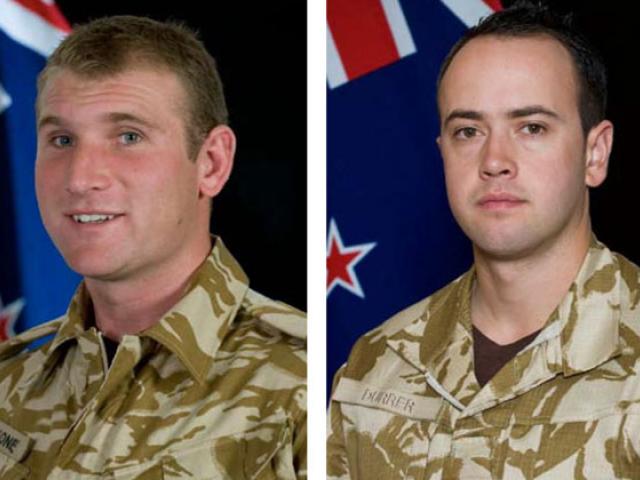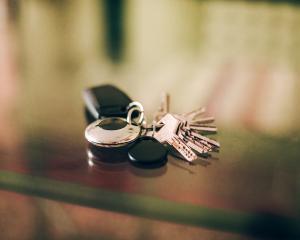
The "Battle of Baghak", a Taliban ambush near Dahane Baghak in the Shikari Valley of Bamyan Province on August 4, 2012, was New Zealand's bloodiest battle since Vietnam.
Lance Corporals Rory Patrick Malone and Pralli Durrer, both aged 26, were killed in the fierce shoot-out north of their Kiwi base, while six comrades were wounded.
Two weeks later, on August 19, 2012, Crib 20 deployment comrades Corporal Luke Tamatea, 31, Lance Corporal Jacinda Baker, 26, and Private Richard Harris, 21, died when their Humvee hit a 20kg roadside improvised explosive device.
New Zealand's decade-long military contribution in Afghanistan was mainly centred on the mountainous, ancient province of Bamyan, renowned for its historical Buddha statues.
When the New Zealand Defence Force (NZDF) pulled out in April 2013, Bamyan Provincial Governor Dr Habiba Sarabi thanked the Kiwi troops for keeping the Taliban at bay.
"The Bamyan people will not forget the services and the humanitarian support of the New Zealand people," he said.
Four years after the deaths of Malone and Durrer, the Kiwi legacy lives on.
Javed Hamim Kakar, senior editor of Kabul-based independent news agency Pajhwok Afghan News, said while the Shikari Valley was once under constant Taliban attacks it is now "secure", with Afghani security forces controlling the area.
Locals are enjoying living in a peaceful, "normal situation", Kakar told the Herald this week.
Bamyan Provincial Governor spokesman Abdulrahman Ahmadi says local insurgents have entered into a peace process and Shikari Valley is now "safe" and enjoys "no problem to the people and security forces".
News that Bamyan villagers are enjoying a safety and security that New Zealanders take for granted came as welcome relief to the father of Rory Malone.
"My son, and his fellow soldiers, didn't go there to die but they were aware of the dangers. Four years down the track [today] and I obviously think a lot about that, was it a waste and so forth. But no, I don't think it was a waste," the 64-year-old told the Herald.
"The local people there in Bamyan were being subjugated by bullies, basically, and it was good that our guys were there to assist them and stand up to the insurgents.
"Rory did not die in vain. Having had a long time to think, and move on from the intense grief at the time, I can see that."
Malone, whose great-great grandfather was Lieutenant Colonel William Malone - the hero of Gallipoli battle Chunuk Bair - was fatally wounded helping to drag his wounded commanding officer Major Craig Wilson to safety.
Family, friends, former comrades and serving personnel will today pause to remember Durrer and Malone. Private Dion Taka, 42, was badly injured during the shootout.
An armour-piercing bullet shattered his pelvis and tore through his sciatic and sacral nerves, leaving him with constant chronic regional pain syndrome (CRPS).
But he considers himself "one of the lucky ones".
He has organised a second annual memorial ride across the Canterbury Plains this Sunday to remember the fallen of 2012 Crib 20 Afghanistan. More than 100 vehicles are expected to join the ride of remembrance.
"To me, August 4 is like what Anzac Day is to most New Zealanders," said Taka, who lost four of his 12-man patrol group during that dark fortnight four years ago.
"We need to ... raise awareness so the public doesn't forget the sacrifices that Crib 20 made."
Chief of Army, Major General Peter Kelly, said those killed and injured at Baghak will be remembered across the armed forces today.
"They exemplified [NZDF] values of courage and commitment."
NZDF liaison officer for families of the fallen, Tina Grant, whose husband, SAS commando Corporal Doug "Duggy" Grant, was killed in Afghanistan in August 2011, said the army wants the public to know about its fallen soldiers.
"We have done a fantastic job ... to help get Afghanistan back on track ... but how often is that spoken about? It's all focused on [the] First ... and Second World War," she said.
Many members of the close-knit Crib 20 brotherhood returned from Afghanistan feeling under-appreciated and misunderstood by the New Zealand public.
But slowly their bravery and positive contribution to the security of Afghanistan, and in particular Bamyan, is being recognised.
That pleases Rory Malone's father, Denis.
"While I'm ambivalent about us having gone there, I am immensely proud that Rory was there. All of them should be proud. The locals must've felt more secure with our boys and girls there."
NZDF's contribution to Afghanistan
• More than 3500 NZDF personnel deployed to Afghanistan, mainly based in Bamyan, between late 2001 and 2013.
• Four separate NZ SAS deployments.
• NZDF spent around $300 million during its commitment in Afghanistan.
• Ten soldiers died in Afghanistan: Lieutenant Tim O'Donnell; Private Kirifi Mila, Corporal Douglas Hughes, Lance Corporal Pralli Durrer, Lance Corporal Rory Malone, Corporal Luke Tamatea, Lance Corporal Jacinda Baker and Private Richard Harris all died in Bamyan Province. Corporal Douglas Grant and Lance Corporal Leon Smith from NZSAS died in Kabul.












